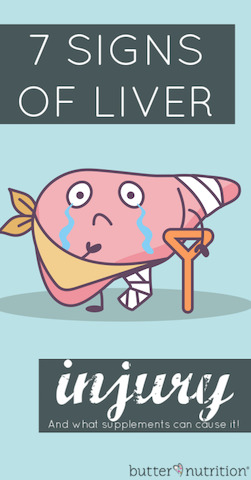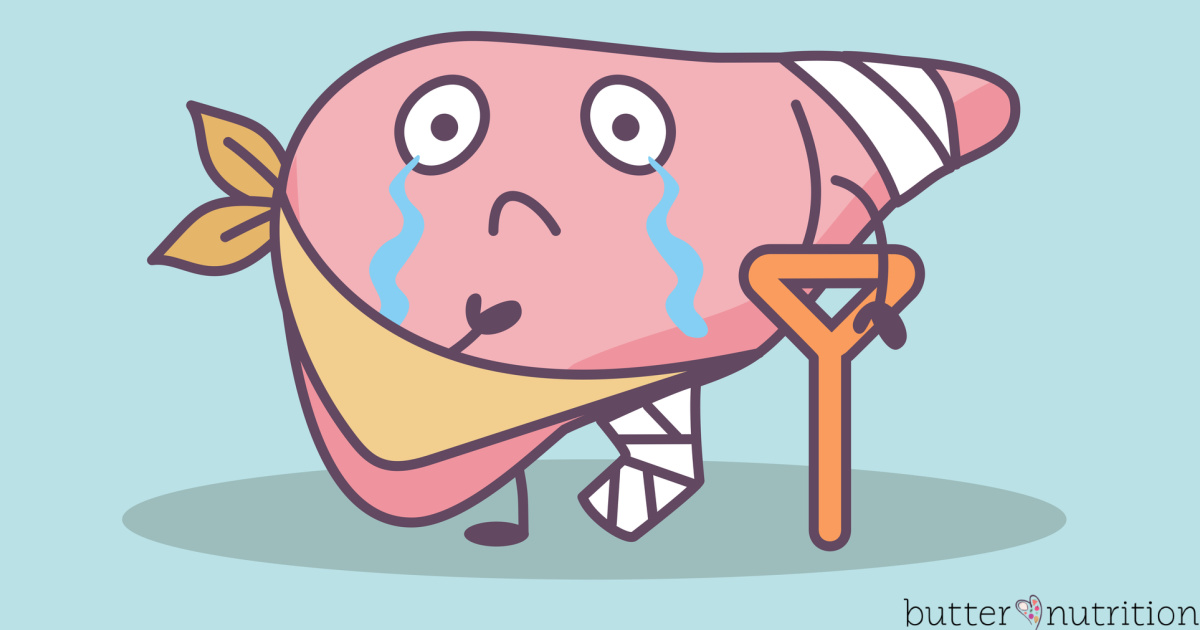This my friends, is why I postulate that people taking little to no supplements (and Rx meds) are often better off health-wise than those choosing to take many.
- A=Well known cause
- B=Highly likely cause
- C=Probable cause
- D=Possible cause
- E=Unlikely cause
- E*=Suspected but unproven cause
- X=Unknown
SIGNS OF LIVER INJURY
A liver injury is at the core of so many health issues I see in clients. When the liver is impaired by not being able to do its job properly, all the body systems take a hit. This is because the liver is an important intersection point that influences the functioning of all of your body’s systems.
- Nausea or vomiting
- Abdominal pain or swelling
- Fatigue or weakness
- Loss of appetite
- Dark urine
- Jaundice (yellowing of the skin or eyes)
- Bruising or bleeding easily
Cholestasis, a condition considered as a subset within liver injuries is particularly troublesome. Essentially, it’s when your bile (think river of fluid helping toxins and waste leave the body through your stool) thickens up and starts stalling in your biliary track. In nutritional therapy we often refer to this as biliary stasis or sluggish bile flow. It’s extremely common. Just imagine the drain on your detoxification system slowing down, getting backed up and the impact that has on your whole body. This is awful for your health and directly linked to more common symptoms such as:
- chronic fatigue
- constipation
- diarrhea
- SIBO, IBS and other gut issues
- estrogen dominance
- mental health symptoms (especially anxiety + depression)
- poor detoxification
It’s important to note that a liver injury can also be compounded by certain nutritional deficiencies, especially not eating enough high quality animal protein and zinc insufficiency.
SUPPLEMENTS LINKED TO LIVER INJURY
This morning I took a few hours to go through the supplement research and below are the most common supplements I hear people taking that are ranked between A-C. Typically I like to see supplements ranked E or lower to really consider them safe enough for my clients to take.
- Ashwagandha Likelihood score: C (probable cause of clinically apparent liver injury).
- Kava Kava Likelihood score: A (well known cause of clinically apparent liver injury).
- Green Tea Likelihood score: A (well established cause of clinically apparent liver injury).
- Black Cohosh Likelihood score: A (products sold as black cohosh are well established causes of clinically apparent liver injury, but the specific ingredient or component that accounts for the injury is unclear).
- Aloe Vera Likelihood score: B (likely but rare cause of clinically apparent liver injury).
- Garcinia Cambogia Likelihood score: B (likely rare cause of clinically apparent liver injury).
- Hydroxycut Likelihood score: B (likely cause of clinically apparent liver injury).
- Comfrey Likelihood score: C (when taken orally, a probable cause of clinically apparent liver injury due to sinusoidal obstruction syndrome).
- Valerian Likelihood score: C (probable rare cause of clinically apparent liver injury).
- Turmeric Likelihood score: B (likely rare cause of clinically apparent liver injury).
- Kratom Likelihood Score: B (likely cause of clinically apparent liver injury).
- Skullcap Likelihood score: B (very likely but rare cause of clinically apparent liver injury).
- Ba Jiao Lian Likelihood score: B (likely cause of clinically apparent liver injury).
- Noni Likelihood score: C (probable rare cause of clinically apparent liver injury).
- Iron Likelihood score: A[H] (well established cause of clinically apparent acute and chronic liver injury when given in high doses). Read more on iron overload.
- Vitamin A Likelihood score: A[H] (well established cause of liver injury when used in high doses). Read more on vitamin A toxicity
- Energy Drinks Likelihood score: C[H] (probable rare cause of clinically apparent liver injury when used in high amounts).
- Niacin (B3) Likelihood score: A[HD] (well known cause of clinically apparent liver injury, but only when given in high doses).
- Copper Likelihood score: A[HD] (well known cause of acute and chronic liver injury but only when taken in high doses). Read more on copper overload.
COMMON RX MEDS AND OVER THE COUNTER DRUGS
While the following are not supplements, but instead popular Rx and over-the-counter drugs, I thought I’d include them as well to highlight the often-forgot impact they can have on your health, and why they are often a big part of the problem. This is especially true for those who have been taking them daily for long periods of time.
- Ibuprofen Likelihood score: A (well known but rare cause of clinically apparent liver injury).
- Acetaminophen (Tylenol): Likelihood score: A[HD] (well established cause of liver injury, but severe cases occur only with high doses).
- Aspirin Likelihood score: A[HD] (well known cause of clinically apparent liver injury when given in high doses).
- Birth Control Pills Likelihood score: A (well known cause of various forms of clinically apparent liver injury).
- Anti-depressants
- Fluoxetine (Prozac) Likelihood score: C (probable cause of clinically apparent liver injury).
- Citalopram (Celexa) Likelihood score: C (probable cause of clinically apparent liver injury).
- Sertraline (Zoloft) Likelihood score: B (likely but rare cause of clinically apparent liver injury).
- Antibiotics
- Amoxicillin Likelihood score: B (highly likely but rare cause of clinically apparent liver injury).
- Azithromycin Likelihood score: A (well known but rare cause of clinically apparent liver injury).
- Amoxicillin and Clavulanate Likelihood score: A (well established cause of clinically apparent liver injury).
- Cephalosporin Likelihood score: B (cephalosporins as a class are very likely but rare causes of clinically apparent liver injury).
If after examining the lists above you see a few things that you take regularly (past or present), you may want to consider them as a possible cause of your health symptoms, especially the ‘mysterious’ symptoms that no practitioner can help you figure out.
LIVER TESTING
If you’re suspicious your liver is impaired in some way, testing can be an invaluable tool to get more data on the situation. The following are some general labs that can help clue you in:
- Comprehensive metabolic panel markers — AST, ALT, Bilirubin, Alkaline Phosphatase
- Nutrient blood labs — vitamin A, iron, copper (notice these popular nutrients that are often overdone in wellness culture by ‘eating the rainbow’ and note their link to liver injury above!)
- Other blood labs — GGT
- Liver/gallbladder ultrasound to investigate biliary stasis and fatty liver
Become a client to get started with nutrient testing for liver health.
NEED HELP SUPPORTING YOUR LIVER?
Sometimes when it comes to getting healthy, it’s all about what NOT to do. Trying too hard to get healthy by eating more ‘health food’ and taking more supplements often has catastrophic effects.
PIN IT:

